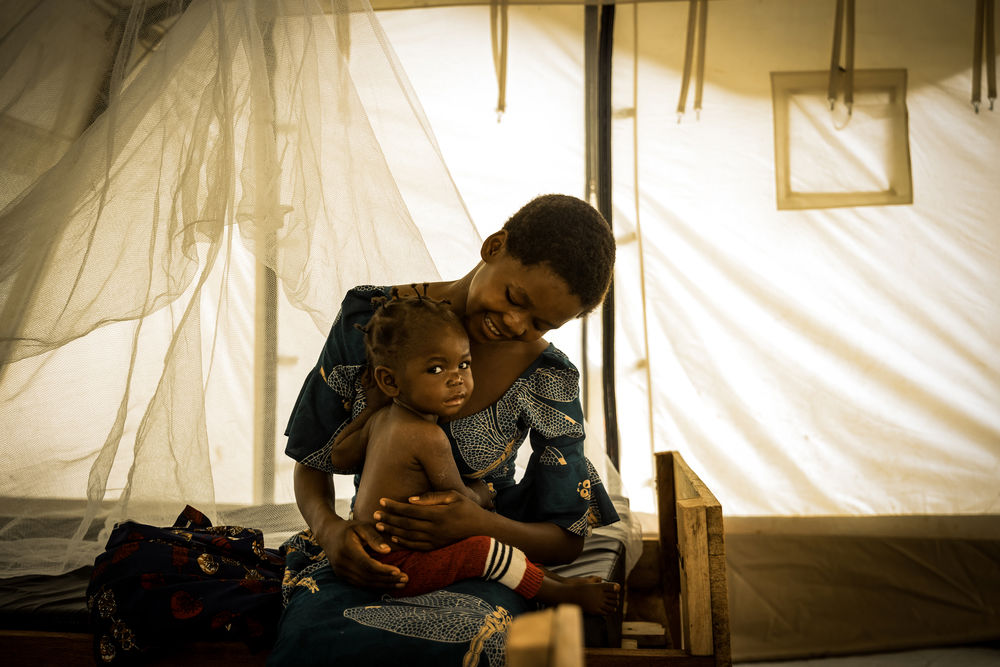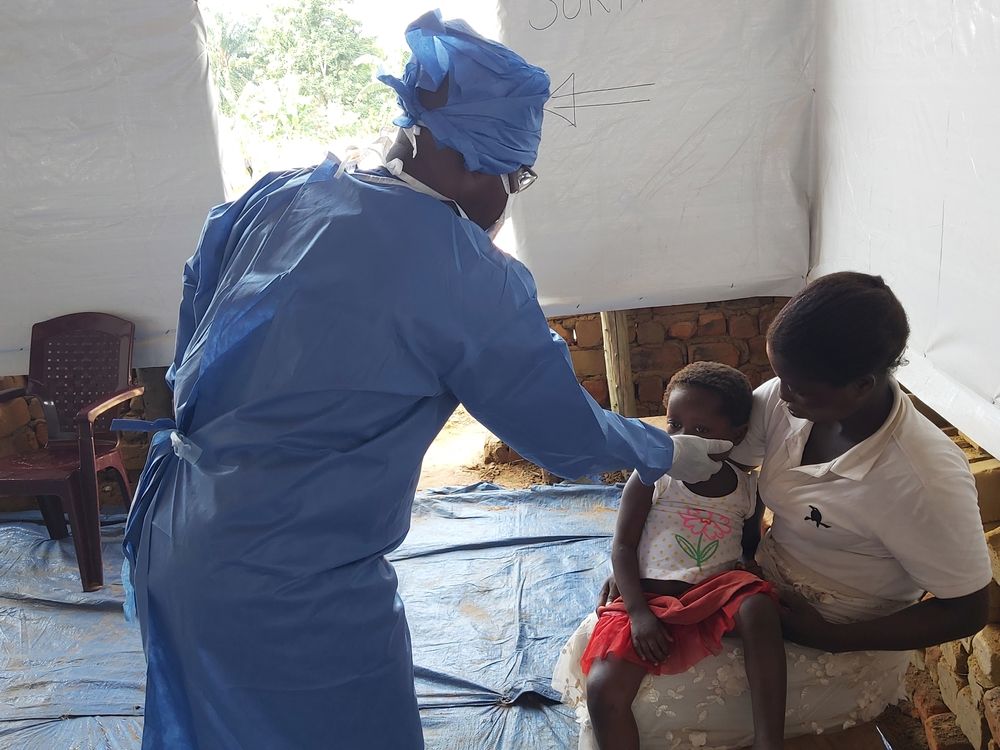In Kalole, in the east of Democratic Republic of Congo (DRC), Médecins Sans Frontières (MSF) is working to reduce the mortality rate among children under five.
"As soon as I saw that Nyota had cold sores, I knew immediately it was measles," says Louise, mother of one-year-old Nyota. Her daughter contracted the disease during a measles outbreak in their village in Shabunda territory, South Kivu province, in July 2022.
“Most of the women in my village use black tea to treat their children when they have measles,” says Louise. “I was no exception. We don't have enough money to take our children to the health centre when they are sick.” Two days after developing cold sores, Nyota's condition deteriorated.
The family’s village is in Kalole health zone, a hard-to-access mining region that is home to an estimated 166,000 people, almost half of them children under 15.
Children living here are at risk of malnutrition and diseases such as measles and malaria, says MSF project coordinator Diego Ráfales. "The isolation, combined with the lack of diversity of products grown or available in the few markets in Kalole and the surrounding area, expose the population to a permanent situation of food insecurity, especially the children,” says Ráfales. “The low measles vaccination coverage rate that we saw when we arrived here also contributed to the children’s vulnerability.”
When children’s immune systems are weakened by an unbalanced diet, it creates favorable conditions for the spread of measles, while malnutrition increases the risk of them developing measles-related complications. In addition, malaria is endemic in Kalole and many children suffer from diarrhoeal diseases and respiratory infections, as is the case in many health zones in South Kivu.
At the same time, health facilities in the area regularly face drug shortages and a lack of qualified medical staff, while many families cannot afford to pay for healthcare.
To improve access to care and lower the mortality rate among children under five, MSF teams have been working since May 2022 in this remote area, where few other humanitarian organisations operate.
“When the community health workers arrived in my village, they told the parents that they could bring their children with measles to the health centre for free treatment,” says Louise. “Immediately, I went with Nyota to the health centre, where she was vaccinated and then transferred to the hospital for treatment, as she also had malaria. After a week in hospital, she is better and we can go home.”
MSF teams provide medical care for children under five in 12 health centres in the region. In Kalole general hospital, they provide medical care for children under 15 and also manage the emergency room, the neonatal unit, the intensive therapeutic feeding centre and the isolation ward for patients with contagious diseases such as measles.
“When children receive the right treatment in time, they can recover quickly,” says Ráfales. "Thanks to the efforts made by our teams to raise awareness in local communities about the importance of early treatment, and despite the local habit of resorting to traditional medicine, we have seen an increase in patient numbers at the medical facilities we support over the past few months.”
From May to December 2022, MSF teams provided free-of-charge medical treatment to 18,445 children in Kalole health zone. MSF also carried out a measles vaccination campaign throughout the area, vaccinating more than 67,700 children under 15 to help prevent future outbreaks of the disease.



